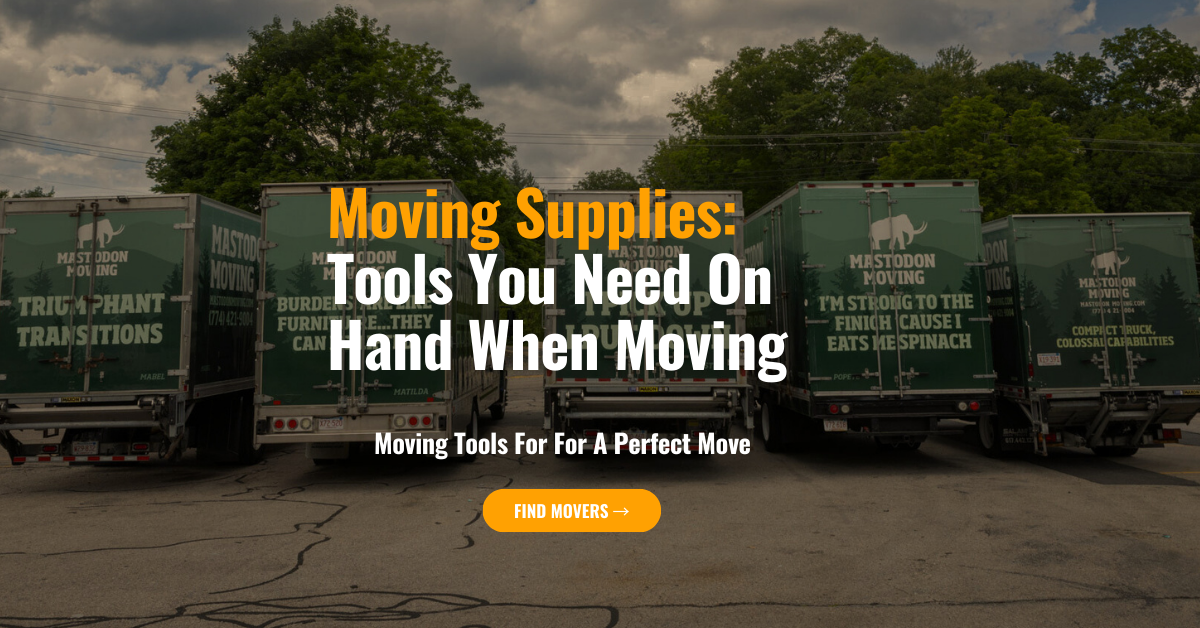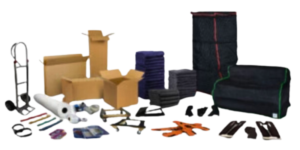
Essential Tools Used for Moving: Your Complete Guide
Moving can be a daunting task, but with the right tools, it becomes much more manageable. From heavy-duty dollies to practical screwdrivers, each tool serves a unique purpose in ensuring your move goes smoothly. In this guide, we’ll explore the essential tools used for moving and provide tips on how to use them, especially when tackling heavy furniture.

The Must-Have Moving Tools
1. Dolly 2 wheel and 4 wheel
Uses:
- Transporting heavy boxes
- Moving large furniture pieces
How to Use: Position the dolly’s base plate under the item, then tilt the dolly back, balancing the weight over the wheels. Secure the item with straps if necessary. Carefully push the dolly to your destination, ensuring you maintain control and avoid sudden movements.
2 Wheel dollies are used for small and medium boxes
4 Wheel dollies are used to transport large bin boxes or heavy furniture
2. Moving Straps
Uses:
- Lifting heavy furniture
- Reducing strain on your back
How to Use: Slip the straps under the furniture and place them over your shoulders or forearms. With a partner, lift the item together, using the straps to distribute the weight evenly. This technique makes it easier to carry bulky items and navigate stairs.
3. Furniture Sliders
Uses:
- Moving heavy furniture across floors
- Preventing scratches on flooring
How to Use: Place sliders under each corner or leg of the furniture. Gently push the furniture across the floor. Sliders reduce friction and make it easy to glide heavy pieces without damaging your floors.
4. Screwdriver
Uses:
- Disassembling furniture
- Tightening or loosening screws
How to Use: Use the appropriate type of screwdriver (Phillips or flathead) to remove screws from furniture. Keep screws and small parts in labeled bags to avoid losing them during the move.
5. Moving Blankets
Uses:
- Protecting furniture and appliances
- Padding fragile items
How to Use: Wrap moving blankets around furniture and secure them with tape or straps. This provides cushioning and prevents damage during transport.
6. Packing Tape and Dispenser
Uses:
- Sealing boxes
- Securing moving blankets
How to Use: Load the tape into the dispenser for easy use. Seal boxes tightly, ensuring the tape covers all seams. Use extra tape to reinforce the bottoms of heavy boxes.
7. Bubble Wrap
Uses:
- Protecting fragile items
- Filling empty spaces in boxes
How to Use: Wrap delicate items in bubble wrap, securing it with tape. Place wrapped items in boxes, filling gaps with additional bubble wrap to prevent movement.
8. Utility Knife
Uses:
- Opening boxes
- Cutting tape and packing materials
How to Use: Extend the blade and carefully cut along the tape or packing material. Retract the blade when not in use to ensure safety.
9. Work Gloves
Uses:
- Protecting hands
- Improving grip
How to Use: Wear gloves while handling heavy or rough items to prevent injuries and improve your grip on slippery surfaces.
10. Shrink Wrap
Uses:
- Securing furniture
- Bundling items together
- Protecting items from dust and dirt
How to Use: Wrap shrink wrap around furniture to keep doors and drawers closed. Use it to bundle items like brooms and rakes together. It also provides an extra layer of protection against dirt and moisture during the move.
Tips for Moving Heavy Furniture
Plan Ahead
Measure doorways, hallways, and staircases to ensure your furniture can fit through them. Disassemble large items if possible.
Use Proper Lifting Techniques
Bend your knees and keep your back straight when lifting. Use your legs to lift, not your back, to avoid injury.
Utilize Moving Tools
Employ dollies, straps, and sliders to move heavy furniture with ease. Work with a partner to distribute the weight and maintain control.
Protect Your Surroundings
Use moving blankets and shrink wrap to cover furniture and protect walls and floors from scratches and dents. Clear pathways to ensure a smooth move.
Take Breaks
Moving is physically demanding. Take regular breaks to rest and stay hydrated to maintain your energy levels throughout the process.
By equipping yourself with the right moving tools and techniques, you can make the moving process less stressful and more efficient. Whether you’re relocating across town or across the country, these tools will help you handle your belongings with care and ease.

